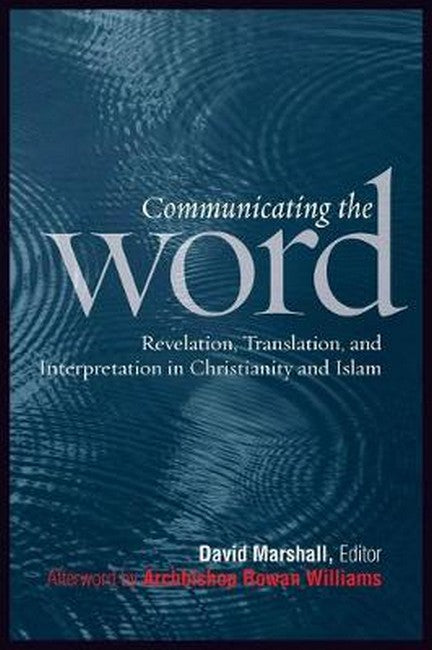Participants IntroductionDavid MarshallPart 1: Particularity, Universality, and Finality in Revelation1.1 Particularity and Universality in the Qur' nSeyed Amir Akrami1.2 Particularity, Universality, and Finality: Insights from the Gospel of JohnDaniel A. Madigan1.3 Revelation in Israel: Deuteronomy 7:1-11; Isaiah 49:1-6Ellen F. Davis1.4 Revelation in Israel: Qur' n 2:47-57; 5:44-48Osman Bakar1.5 Revelation in Christ: 1 John 1:1-4; Matthew 28:16-20; John 16:12-15 John Langan1.6 Revelation in the Qur' n: Qur' n 6:91-92; 25:32; 21:107; 38:87; 33:40Asma AfsaruddinPart 2: Translating the Word? 2.1 Translating the Qur' nMuhammad Abdel Haleem2.2 Translation and the Incarnate Word: Scripture and the Frontier of LanguagesLamin Sanneh2.3 The Body of Christ: 1 Corinthians 11:23-27 and 12:12-13, 27Daniel Madigan2.4 An Arabic Qur' n: Qur' n 12:1-2; 14:4; 16:103; 26:192-99; 46:12Muhammad Abdel Haleem2.5 The Divine and Human Origins of the Bible: Exodus 32:15-16; Jeremiah 1:9; 2 Timothy 3:16-17; Luke 1:1-4; 1 Corinthians 7:10-13; Mark 5:41John Azumah2.6 The Self-Perception and the Originality of the Qur' n: Qur' n 2:23-24; 3:44; 10:15; 69:38-47Abdullah SaeedPart 3: Methods and Authority in Interpretation 3.1 Authority in Interpretation: a Survey of the History of ChristianityJohn Langan3.2 Authority in Qur' nic Interpretation and Interpretive CommunitiesAbdullah Saeed3.3 Reading Scripture in the Light of Christ: Matthew 12:1-8; Luke 24:44-49Susan Eastman3.4 Interpreting the Qur' n: Qur' n 3:7; 2:106; 16:101; 31:20Muhammad Abdel Haleem3.5 The Use of Scripture in Generous LoveMichael Ipgrave3.6 The Use of Scripture in A Common WordReza Shah-KazemiConversations in RomeDavid MarshallAfterwordRowan Williams

